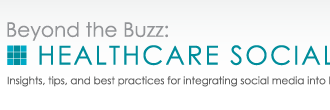Just had a new guest column posted on www.sheknows.com – here are some of the highlights:
Just had a new guest column posted on www.sheknows.com – here are some of the highlights:
From determining whether that ache in your side is appendicitis or a pulled muscle to discovering the symptoms of pneumonia, we use the Internet to gather information on what ails us. This makes us more informed consumers – in some cases – but not always healthier ones. In order to derive the most benefit from online resources, we need to know how to use them intelligently.
Top tips on online health searches:
- Take note of the type of site that you are searching. For example, a “.gov” suffix means something different from a “.org” or a “.com.” This will clue you to on the site’s mission, as there are restrictions on .gov and .edu sites that make them unique.
- Try to “triangulate” whenever possible. You should look for two or three different resources that tell the same story.
- Look for original sources. Health care sites sometimes present a digest of information or simplified messages, but the empowered learner will keep a critical eye out for where they’re getting their facts.
- Look out for reporting that seems too good to be true. If you find a site that focuses only on the miracle benefits of a diet, an exercise routine or a supplement, you should realize you’re only getting half of the story.
Likewise, we’re just beginning to understand how peer-to-peer online patient communities can influence health care, but there’s little doubt that they have a real impact. Studies of behavior change suggest that social norms and peer feedback are fundamental drivers in both the healthy and unhealthy decisions we make. If we’re open to sharing, we can seek support from those communities that can best help us make smart choices.
Top tips on leveraging online peer-to-peer health communities:
- Find a community with patients like you. Look to disease advocacy groups for a list of websites with disease-specific communities, or visit a site like Parentslike-me.com to see if a group’s already been formed.
- Surf through sites to see how robust the conversations are. Many people find that their questions have already been asked and answered dozens of times — verification that they are not alone.
- Look for engagement and intelligent questions/answers. These details signify that the group will give support, as well as a balanced look at information.
- Document what you’ve learned. Don’t try to explain what you think you learned to your physician; show her what you read.
Every second, hundreds of people are being cast in the role of patient – a role for which no one rehearses and no one auditions. Becoming empowered in your health information is the best path to regaining control. This is the irony in patient empowerment: We are best positioned to take ownership of our health when we accept the reality that we cannot do it alone.

I have little doubt that the ePatient movement is going to fundamentally change the provision and the culture of healthcare – in fact it is one of the three major themes in #socialQi the book. But for this to happen, the patients themselves (and their caregivers) must develop a series of skills that allow them to effectively leverage these new resources. I hope these tips provide some information to ensure we can each immediately take a small step in that direction.








